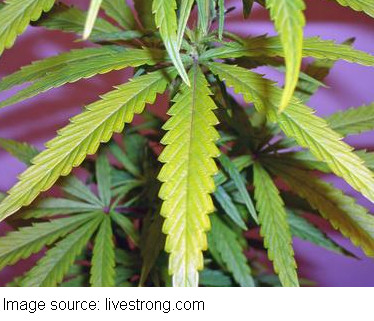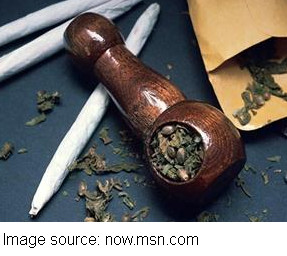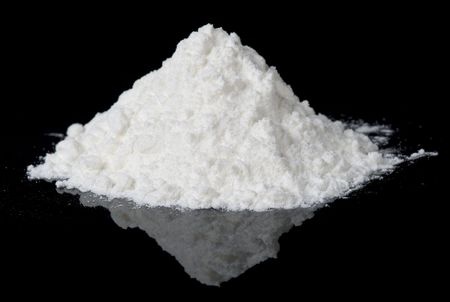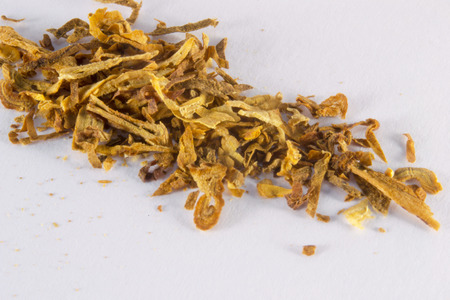What is Marijuana?
Marijuana comes from the dried leaves and flowers of a hemp plant, Cannabis sativa. This is the most commonly used drug in the USA, that is illegal. Because of its widespread usage, researchers and healthcare practitioners as well as law enforcement officials need to know, “how long does marijuana stay in your system”.
At least one national survey estimated that about 6,000 Americans have tried marijuana for the first time. In addition, more than 25 million people used it last year. When you look world-wide, about 162 million adults smoke marijuana at least once a year and nearly 22.5 million smoke it daily. [5]
It is the second most widely preferred mood-altering substance used all over the world – after alcohol. Many people wonder why it is so popular all around the world. Many studies have been done.

How long does marijuana high last?
The users usually feel the positive high or euphoria of marijuana for at least two to eight hours, after which they would usually feel sleepy. The main reason for this is its main active component, tetrahydrocannabinol (THC), which brings about mind-altering or psychoactive effects. Marijuana’s potency is influenced by how much THC it contains, and that normally differs from one plant to another.
How long does marijuana stay fresh for it to have a stronger or lesser effect? The longer the marijuana is exposed to light and heat, the lesser its effect will be since THC degrades after a while. The leaves dry out causing the smoke to be more harsh and causing users to cough more often.
Marijuana is usually loosely rolled (joints) and smoked but sometimes a water pipe is used. Some users would cut open cigars and substitute the tobacco inside with marijuana (blunts). Often times these “blunts” and “joints” are combined with other products such as cocaine or phencyclidine to make a more potent product. However, smoking is not the only means of taking in marijuana. Some would brew it like tea, mix it baked goods or chew the dry leaves.
How long does marijuana stay in your system?
Marijuana is one of the most frequently tested drugs in several countries worldwide, especially in the United States. That is why it is important to know, “How long does marijuana stay in your system?”
There are actually several factors that would determine the length of time the drug’s by-products would stay inside the body: how often and how much is used, the general health of the user, the body weight, metabolism and the amount of fluid intake.
Smoked marijuana diffuses into the bloodstream in a matter of seconds, but if ingested orally the absorption will take longer. Once it reaches the blood, it is metabolized rapidly into inert molecules (metabolites: THC). The metabolites can remain in the body for around three to seven days after intake. The terminal half-life of this compound ranges from twenty hours to ten days, depending on the potency and amount of the drug used. Therefore, if you take in around 1 mg of TCH with a half-life of 20 hours, your body will still have 0.031 mg of THC even after four days. The more potent the marijuana used and the more frequent a person uses it, would increase the time the drug is removed from your system. If smoked regularly, the THC lingers in the system for as long as 45 to 90 days. And since the metabolites of marijuana are fat-soluble, it is stored in the major organs in the body wherever fat cells can be found: brain, kidneys, and the liver. Hence, the more fats cells a person has, the longer it will take for THC to be removed from the system.
How Long Does Marijuana Stay In Your Hair?

The hair cannot cleanse itself internally. Therefore any THC that is stored in the follicles and strands are not removed promptly. The metabolites of marijuana can settle in the hair for months and even up to three years. The hair grows around 0.5 cm a month. It takes about 4 to 5 days from the time THC was absorbed for the hair to grow. For this reason, the metabolites can be a permanent proof of chronic marijuana use. This is the reason why most individuals addicted to marijuana wear their hair cut short or shaved off.
How Long Does Marijuana Stay In Your Blood?
How long the THC stays in the user’s blood depends on the frequency of marijuana use. Persons who smoked marijuana just once in their lives would have traces of the metabolites cleaned out within three to five days. If the user smoked only occasionally, perhaps once a week or every ten days, the metabolites can be detected for up to 10 days. In regular users, THC remains in the blood for as long as 90 days. Heavy users, on the other hand, can have THC trace in their blood for as long as six months.
How Long Does Marijuana Stay In Your Saliva?
Most drugs leave residues in the saliva for only about 6 to 24 hours from last use. This is why the saliva drug test can only be used effectively if the person has used the drug on the day of the test. Consequently, the detection of marijuana in saliva testing is not conclusive since the residues of the drug do not remain for long.
How Long Does Marijuana Stay In Your Urine?
Individuals who have used marijuana for the first time need one to six days before it is totally excreted from the system. Occasional marijuana users often have residues of the THC metabolite for three to nine days while heavy users or individuals with high fat ratio can test positive in urine exams for approximately thirty days.
Marijuana drug testing
A drug test for marijuana is basically the procedural analysis of any organic sample such as blood, urine, saliva, hair or sweat in order to detect the presence of the main active ingredient of marijuana (THC) or any of its metabolites.
Some medications may give a false-positive result during the test:
- Ibuprofen,
- Riboflavin,
- Promethazine,
- Naproxen,
- Ketoprofen and
- Pantoprazole.
- Individuals with kidney infections,diabetes and liver diseases could also yield a false-positive.
- Foods with poppy seeds like muffins and bagels could also create some problems during the testing procedure, so avoid these foods at least three days before the scheduled test.
Before the test, it would be wise to inform the technician or administrator of the any legal prescription drugs being taken that might affect the results of the test.
Blood Tests
Active presence of marijuana metabolites in the bloodstream is detected through blood tests. However, urine tests detect only the presence of the non-psychoactive THC-COOH marijuana metabolite. When marijuana is smoked, the THC level rapidly peaks in just a few minutes after inhalation. It often reaches a level more than 100 ng/ml. After an hour, the level declines sharply thus an unusually elevated THC level is an indication of recent marijuana use. The levels will remain low at 1-2 ng/ml for eight hours without any indications of impairment. Chronic marijuana users who have stopped using the drug for a week are likely to show residual levels of THC of about 1-2 ng/ml.
This test is not performed routinely because it is difficult and invasive. Blood tests are normally done during accident investigations or DUIs to determine if the person was under the effects of the drug at that particular time.
Urine Test
This is the widely used testing procedure for marijuana. This does not measure the psychoactive ingredient of marijuana. However, THC-COOH, an inactive metabolite, can remain in the blood plasma for weeks without signs of impairments. The frequency of drug use influences how long the metabolites will be detectable in the urine sample. This is due to the fact that the metabolite gradually builds up around 100 ng/ml and takes weeks to drop off to a threshold that cannot be detected in the test.
It takes time for the metabolites to reach the kidneys and excreted through the urine. The user can test negative one to four hours from use and could suddenly test positive with 50 ng/ml level. Unlike the blood tests, an individual tested positive is not presently impaired by the drug.
There are two kinds of urine tests that can test the presence of marijuana. First is the screening test which uses an immunoassay to determine the parent metabolite. Next the confirmatory test uses gas chromatography, mass spectrometry or liquid chromatography to verify the specific drug used.
Saliva Test
This procedure is non-invasive, thus, is gaining popularity especially among teenagers. This test is easy to administer. Yet, to ensure accurate results, it needs to be processed in the laboratory. This new procedure’s sensitivity to THC is not yet well verified. In theory, the test detects any recent use of marijuana but is effective only for a maximum of 24 hours. There are still no accepted cut-off concentration and standards for this procedure. Results from this particular drug test are not yet acceptable in court.
Hair Test
This is another non-invasive test for chronic, regular marijuana users. When the THC metabolites are absorbed, they will be detected only after seven to ten days from first use. These THC metabolites may stay in the hair strands for about three months – unless the person shaves or cuts the hair short.
The test requires about forty to fifty strands of hair cut from the scalp at the crown region. The procedure tests the hairs 1.5 inches from the root. This particular drug test can determine when the user started using the drug and if use was discontinued. It is not probable to detect one-time use of marijuana with this procedure. Normal hair washing or other hair procedures such as dyeing, bleaching or permanent waving does not reduce the quantitative results. Shampooing the hair would remove the external contaminants only and will not affect the results. Results can only be affected if the hair’s protein matrix is destroyed.
Head hair is the primary choice for this particular drug test. If the user, has no hair or the hair is too short to get viable samples, body hair can be used as an alternative. If this is the case the time frame for the test will be one year since body hair grows relatively slow compared to head hair and would have dissimilar growth patterns. The amount of metabolites on the hair should at least be 0.10 pg/mg for it to be detected.




Hi I used to be a chronic marijauna smoker I smoked about 4 blunts a day I quit this smoking at the end of Jan, The thc levels in my body are going up and down what would make this happen.